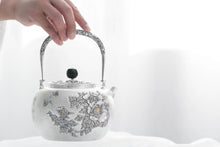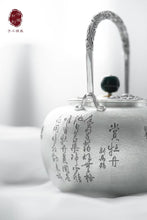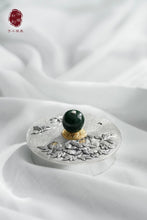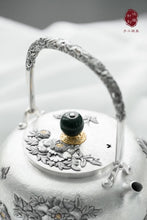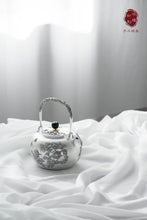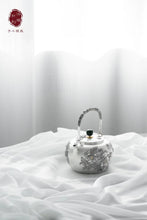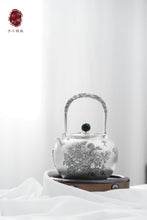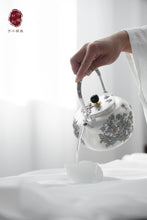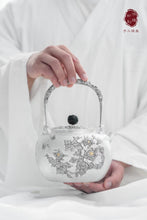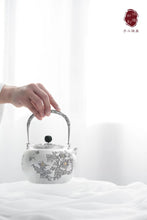
It is human instinct to pursue a better quality of life. It is also the instinct of tea lovers to pursue better tea ceremony and tea art. Silver pots are mainly used to obtain better water sources and better tea tasting experience in tea ceremony life. They are noble and elegant, and are also a symbol of ritual and status. A silver pot can be passed down.
Maybe people are willing to spend 500 yuan to buy clothes, 1,000 yuan to buy a bag, or even 5,000 yuan to change a mobile phone, but for tea lovers, they are more willing to spend this money to buy good tea and good tea utensils, such as an exquisite handmade silver pot! Maybe a few years or even ten years later, everyone will find that except for this silver pot, the other things they bought are useless, and those clothes and bags have been thrown away. A handmade silver pot is both an interest and an investment for us. When those luxury goods are worn out and the once fashionable products are outdated, you will find that only the handmade silver pots in your collection have a lasting charm and can continue to be passed down.
Today, Tongxinshe Teahouse recommends this "National Beauty Peony Silver Pot" made of 9999 pure silver and handmade. The peony is gorgeous and beautiful.
——· National Beauty Peony Silver Pot ·——
Capacity: 1000 ml •
Weight: 630 grams •
Material: 999.9 pure silver •
Craftsmanship: pure handmade
This silver pot is decorated with peony. Peony is the king of flowers and represents wealth and auspiciousness in all seasons.
The beauty and beauty of peony flowers have been recognized and praised by countless people. Its flowers are large and fragrant. Even if it withers, it is a complete flower that falls, proud and beautiful. Perhaps it is a strong stroke left by the creator in the world, hoping that it will bring more publicity and enthusiasm to the world. Therefore, on this silver pot, peony flowers are carved to bloom, with a full composition and a strong three-dimensional sense, showing the decoration vividly, revealing a rich and elegant atmosphere.
This peony silver pot has a capacity of 1000cc and a grand appearance. The unique pot shape can stand out on the tea table and become a pearl that lights up the tea table. It is practical. A pot that is too big is slightly heavy and clumsy for boiling water. The peony silver pot is much more flexible. It is enough for two or three people to drink tea, and it will not boil too much water and the remaining water will become cold, affecting the brewing effect and the interest in drinking tea.
It can be said that the capacity of the peony pot has multiple functions of boiling water and brewing tea.
The silver pot boils water and can clean dust. The "Tea Classic" describes silverware as "the cleanest" thing, which means it is clean because silverware contains rich silver ions, which can play a role in sterilization and disinfection, and is healthier. In repeated attempts, it is found that the taste of tea brewed with water boiled in a silver pot will be more delicate, soft, gentle and long-lasting. The same water, the same tea, and the same person brewing it, the taste of tea brewed in a silver pot is indeed warm and sweet, and the tea fragrance and tea taste are more fully expressed. The silver pot boils water and brews tea, which does have a color-enhancing effect that cannot be underestimated. It can make the water soft, thin and smooth like silk, and the taste of the throat is more delicate, sweet, smooth and full. It not only promotes the fragrance of tea, but also can wake up the taste of tea, which is difficult to match with other utensils.
The silver used in Hongji Treasures is made of 999 pure silver, which is the standard of the national treasury. It is made by the skillful hands of Mr. Hong Jike, using the unique craftsmanship passed down from generation to generation. Each of these handmade silver pots has its own unique charm. Each work has subtle differences in the pattern position and mouth. The charm of pure handmade works lies in this. It is impossible to make completely identical works.
"Hongji Treasures" in Heqing, Yunnan, began in the Guangxu period of the Qing Dynasty. It has been passed down for five generations and still insists on using traditional pot-making techniques to make pots. As the fourth-generation inheritor of "Hongji Treasures", Mr. Hong Jike is proficient in a variety of handmade pot-making techniques.
Hong Jike, Bai nationality, born in 1971. The fourth-generation inheritor of "Hongji Treasures". The ninth batch of intangible cultural heritage projects in Heqing County, the representative inheritor of silver jewelry forging techniques (Heqing silverware forging techniques).










